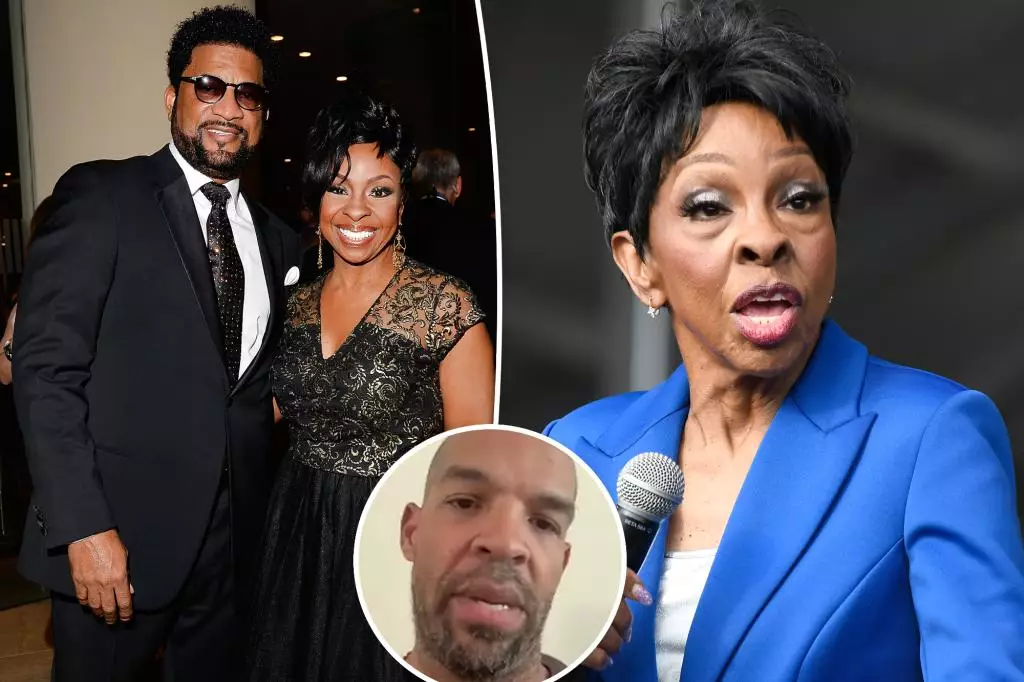In the realm of celebrities, the line between public perception and private truth is often blurred. Gladys Knight, revered as the “Empress of Soul,” has recently been caught in a whirlwind of conflicting narratives. Her public declarations of good health and happiness stand in stark contrast to her son’s claims of elder abuse and neglect. Such disparities illustrate how celebrities must navigate an elaborate dance: maintaining their cherished public image while grappling with deeply personal struggles concealed behind closed doors. It’s a stark reminder that even icons with decades of artistry and resilience can be vulnerable to the weight of misinformation or personal pain that permeates their lives.
People tend to project an aura of invincibility onto figures like Knight, especially given her legendary status in music. Yet, this facade can be brittle, susceptible to cracks when family dynamics and health issues come to the forefront. The overwhelming influence of the media and public opinion often pressure stars to maintain appearances, sometimes at the expense of their well-being. Knight’s insistence that she is “healthy and happy” illustrates her desire to control her narrative, but it also raises questions about the extent to which she can truly insulate herself from her personal difficulties amid such scrutiny.
The Impact of Family Disputes on a Celebrity’s Legacy
The allegations made by Shanga Hankerson bring a complex layer to Knight’s story—one that extends beyond her musical achievements to explore the fragility of family bonds and the vulnerability of aging figures. When an adult child publicly claims elder abuse, it’s not merely a familial dispute: it becomes a matter that challenges the integrity of a public persona cultivated over decades. Such accusations tend to catalyze a media firestorm, casting shadows over the individual’s legacy unless adequately addressed.
However, the discomfort lies in the ambiguity—the fact that these allegations remain under investigation and the details are murky. Public perception is heavily influenced by the narrative that emerges first, and in this case, speculation is rife. Is Knight truly being mistreated, or are these claims a manifestation of familial discord, misunderstandings, or even miscommunication? The dilemma lies in balancing respect for the privacy of the involved parties while acknowledging the serious nature of the accusations. The situation exemplifies how celebrity disputes can quickly morph into public controversies that threaten to tarnish established reputations unless carefully managed.
The Societal Reflection: Aging, Power, and Vulnerability
This controversy also shines a light on broader societal themes: aging, independence, and the societal tendency to scrutinize how society treats its elder members. Gladys Knight’s high-profile status and her repeated emphasis on her vitality defy the conventional image of aging as decline or vulnerability. Simultaneously, her son’s claims underscore societal anxieties around elder abuse and exploitation—topics that are often overlooked or stigmatized.
The power imbalance becomes even more evident when one considers her relationship with William McDowell—significantly younger and her spouse since 2001. The dynamic raises questions about elder autonomy and the potential for manipulation within relationships involving significant age gaps. It is easy to dismiss these claims as unfounded, especially given Knight’s fame, but the reality is that even the most celebrated individuals are not immune to exploitation or neglect. Society must confront its discomfort with aging celebrities and understand that their vulnerability, privacy, and dignity deserve the same respect accorded to ordinary citizens.
The Reality of Public Discourse in Celebrity Disputes
While fans and critics alike watch these unfolding events, the broader issue revolves around how society consumes and reacts to personal disputes involving celebrities. Public figures like Knight are under constant scrutiny, making it nearly impossible to disentangle personal hardship from public spectacle. The media’s depiction often amplifies feelings of betrayal or tragedy, sometimes without sufficient context or understanding.
Moreover, the legal and ethical questions surrounding allegations of elder abuse bring forth the importance of protecting vulnerable populations, regardless of fame. The involvement of authorities and the confidentiality surrounding investigations serve as reminders that these are serious issues impacting real lives. Yet, the public’s appetite for scandal often overshadows the need for sensitivity and due process.
In an era of instant communication and social media outrage, denying or confirming claims carries significant weight. The delicate balance lies in respecting the privacy of the individuals involved while still holding space for accountability. The case of Gladys Knight acts as a compelling reminder that the celebrity world, while glamorous on the surface, is often riddled with complexity, vulnerability, and human frailty.

